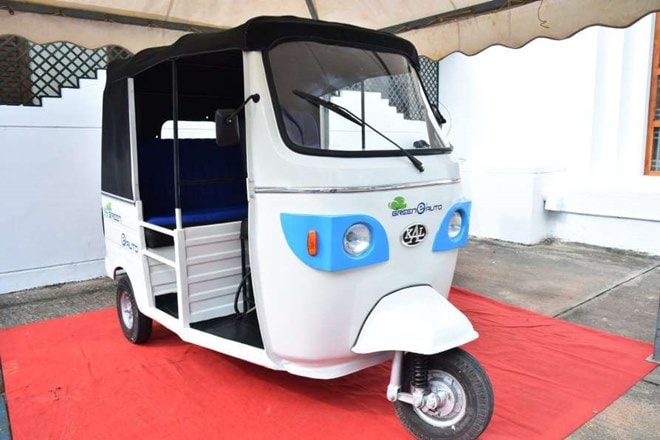The Nepal government has emerged as the frontrunner to place orders to import 200 electric auto-rickshaws from KAL (Kerala Automobiles), India’s first public sector e-auto rickshaw maker. While the country is under a lockdown, the state-run PSU has opened bookings of its E-Neem, that costs just 50 paise per km to run. “From April, 200 E-Neem auto rickshaws will roll out to the saleroom, every month. The assembly units in its factory in Neyyattinkara had been ready, for this full-fledged commercial production from last year,” Kerala industry minister EP Jayarajan told FE. As soon as the lockdown is over, this will take-off. E-Neem, with a base-price of about Rs 2 lakh, was originally slated to debut on the Indian roads in September, 2019.
Besides Nepal’s 200 vehicles order, Tamil Nadu has shown interest in buying 1,000 e-auto rickshaws, said Jayarajan, adding that there has been a spate of enquiries from Rajasthan, Andhra Pradesh and Karnataka. The significance of E-Neem’s orderbook bursting at the seams with enquiries this week, is that from April 1, it would be entitled to the Rs 30,000 green subsidy, as per the state’s e-vehicle policy. However, its major attraction is the battery, indigenously made, with German technology support, that stirs up a 2KV motor. “One can charge the vehicle, with an ordinary 3-pin 5 amp plug. And at a single charging, the auto rikshaw can run up to 100 km,” said A Shajahan, managing director, KAL.
Japanese manufacturer Toshiba is also likely to associate with KAL in the production of e-auto rickshaw. A five-member team headed by Tomohiko Okado, managing director, Toshiba India, had visited the KAL factory and offered to associate with the state-run PSU soon. The Kerala government targets to set one million EVs on road by 2022. Mahindra’s Treo e-auto and Treo Yaari e-rickshaws are already in the market. The state has also signed an EoI with State Electricity Board (KSEB) for developing charging infrastructure.
